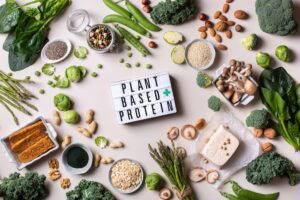Founded in 1991, Coyuchi has long championed eco-conscious living through home textiles that are not just luxurious, but also planet-friendly. The brand’s dedication to sustainable materials, ethical sourcing, and circular practices makes it a standout in sustainable bedding and home goods.
Certified Organic, Traceable Materials
- All of Coyuchi’s bedding and bath products are made with GOTS-certified organic fibers, ensuring products contain at least 95% organic ingredients and meet strict standards for environmental and social responsibility.
- The brand sources Climate Beneficial™ Wool, grown on ranches practicing carbon-farming and regenerative agriculture, offering both comfort and climate-positive impact.
- Coyuchi’s linens, towels, and more feature plant-based dyes, which are biodegradable and avoid the environmental harm associated with synthetic dyes.
Ethical Supply Chains & Community Impact
- Coyuchi offers Fair Trade Certified™ products that ensure traceable supply chains and fair labor practices. Since 2014, the company has contributed over $106,000 in Fair Trade premiums to support community projects, including education, clean energy, and health initiatives.
- Notably, Coyuchi introduced the first-ever Fair Trade Certified towels in North America with its Air Weight® collection.
Circularity & Waste Reduction
- Coyuchi’s 2nd Home Take Back and 2nd Home Renewed programs turn pre-loved textiles into renewed products—fostering resale and reducing textile waste.
- They were early adopters of plant-based finishing processes, such as miDori, which safely replaces toxic chemical finishes with natural alternatives for healthier, safer fabrics.
Safety & Transparency
- The brand holds the MADE SAFE® certification, meaning its products are free from harmful chemicals such as endocrine disruptors, carcinogens, and neurotoxins.
- GOTS certification also confirms Coyuchi’s use of responsibly sourced materials and wastewater management, ensuring safety and traceability across the supply chain.
Coyuchi in Context
- Impactful.ninja—a sustainable living platform—recognizes Coyuchi’s commitment to circularity and low-impact materials, praising the brand for its integrity and accountability.
- A 2025 sustainability ranking lists Coyuchi among top eco-bedding brands, noting its blend of premium quality and environmental stewardship.
Final Thoughts
Coyuchi stands out as a pioneer in sustainable home textiles. With organic certifications, ethical trade initiatives, regenerative wool sourcing, and product take-back systems, the brand embodies a comprehensive approach to environmental and social responsibility.
For consumers who value transparency and positive impact, Coyuchi offers both comfort and credibility—making it a compelling choice for sustainable home living.









Reader Interactions